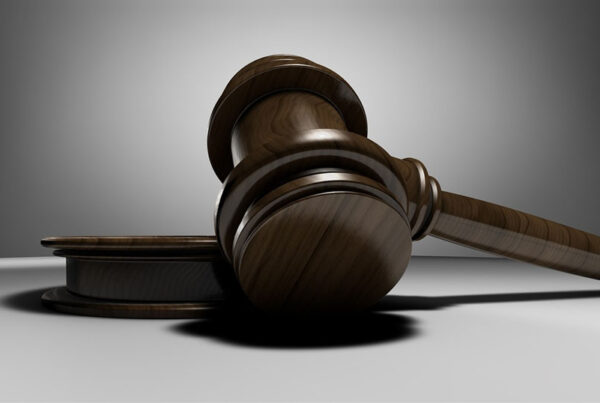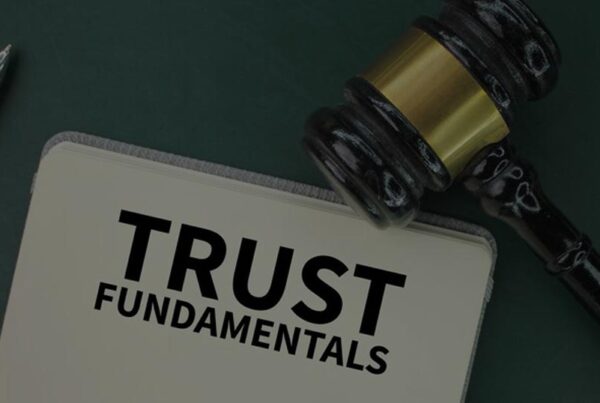WHITE COLLAR CRIMES
When is Insider Trading Illegal?
The stock market crash of 1929 set off a chain reaction that led to bankruptcies, business closures, rampant unemployment, contraction of credit, bank failures, a dwindling money supply and, ultimately, pervasive economic depression. What collapsed along with stock prices and the economy was public trust in U.S. markets. By 1933, at the height of the Great Depression, the need for action was clear. The following year, Congress passed the Securities Exchange Act of 1934, from which the U.S. Securities and Exchange Commission (SEC) was born. The SEC is charged with protecting investors, maintaining fair, orderly and efficient markets and facilitating capital formation.
Two prongs of the young SEC’s effort to restore public confidence in U.S. markets included prosecuting fraudulent and predatory practices targeting investors and eliminating large-transaction insider trading by the top executives of major corporations—a mission that has only grown in scope and gained in momentum since its inception 87 years ago.
Who is an insider?
In the eyes of the SEC, an ‘insider’ is an individual who falls into one, or both, of two categories:
- A corporation’s directors, officers or any beneficial owners of more than 10% of a corporation’s equity securities; and/or,
- Any individual who trades securities for profit based on non-public material information.
For example, if the CEO of a publicly traded corporation unintentionally reveals information about the company’s upcoming quarterly earnings report to her neighbor, she has disclosed insider information, giving the neighbor an unfair advantage over the public trader or investor. If the neighbor then trades on this information before the quarterly earnings report is released to the public, it becomes illegal insider trading. Alternatively, if the neighbor trades after the report is release, the unfair advantage is negated, and the insider trading is legal.
What are the potential penalties?
Depending on the particular facts surrounding an alleged offense, the government has a variety of statutes at its disposal when it comes to charging an alleged offender. Defendants accused of insider trading may likely be charged under one or more of the following statutes:
15 U.S.C. §§78j(b), 78ff – The Securities and Exchange Act of 1934
To convict an alleged offender under §§78j(b), 78ff, federal prosecutors must prove beyond a reasonable doubt that the defendant willfully and knowingly schemed to defraud, made a false statement of material fact, omitted a material fact making the defendant’s statements misleading, or engaged in any fraudulent or deceitful act upon another, in connection with the purchase or sale of a security.
‘Willfully,’ as defined under §78ff, does not require the government to prove the defendant knew their conduct was actually unlawful. The defendant need only have known their scheme or falsification to be wrongful. Simply showing the defendant had a reckless disregard for the truthfulness or untruthfulness of their conduct is sufficient to sustain a conviction for securities fraud.
Under §78ff, a convicted defendant faces penalties of up to 20 years in prison, fines up to $5,000,000, or both. If the defendant is not a natural person, fines may be as much as $25,000,000.
18 U.S.C. §1348 – Securities Fraud
- 1348 criminalizes the knowing execution, or attempted execution, of a scheme to either:
- Defraud anyone in connection with a commodity future, or option for a commodity future, or any securities registered under section 12 of the Securities Exchange Act of 1934 (15 U.S.C. §78l) or of an issuer required to file reports under section 15(d) of 15 U.S.C. §78o(d); or
- Obtain under false pretenses any money or property in connection with the purchase or sale of a commodity future, or option for a commodity future, or any securities registered under section 12 of the Securities Exchange Act of 1934 (15 U.S.C. §78l) or of an issuer required to file reports under section 15(d) of 15 U.S.C. §78o(d).
If convicted under this statute, defendants face up to 25 years in prison, fines up to $250,000, or both. If the defendant is an organization fines may be as high as $500,000.
18 U.S.C. §1349 – Attempt and Conspiracy
- 1349 criminalizes the attempt or conspiracy to commit a §1348 or other fraud offense and subjects convicted defendants to the same penalties as those of the offense, object of the attempt or conspiracy.
Are there any related charges?
When charging a defendant facing allegations of insider trading, federal prosecutors are not restricted to securities fraud statutes. Recent defendants charged with insider trading have faced charges drawn from a fairly wide range of related criminal statutes, just a few of which include:
18 U.S.C. §1343 – Wire Fraud
18 U.S.C. §§1956(a)(1-2) – Money Laundering
18 U.S.C. §1956(h) – Conspiracy to Commit Money Laundering
18 U.S.C. §1001 – False Statements
Insider Trading in the News
In March 2020, the SEC filed charges in federal court in the Middle District of Pennsylvania, accusing David M. Mahan, a Rite Aid employee, of insider trading based on his use of nonpublic information regarding an upcoming merger between Rite Aid and Walgreens Boots Alliance, Inc. The SEC alleged that Mahan learned through his employment that the anticipated merger closing date would be delayed. According to the complaint, Mahan promptly sold all of his Rite Aid stock and options. Just days later, a news article announced the delayed merger and Rite Aid’s share price plunged 13% within a day. The SEC claims that by unloading his Rite Aid stock before news of the merger delay was made public, Mahan saved himself from a loss of about $87,000.
Neither admitting nor denying the allegations, Mahan consented to a final judgment in which the Pennsylvania federal court enjoined him from violating the federal securities law provisions and ordered him to pay over $180,000 in disgorgement, interest and civil penalties.
White Collar Crimes
Recent Posts






